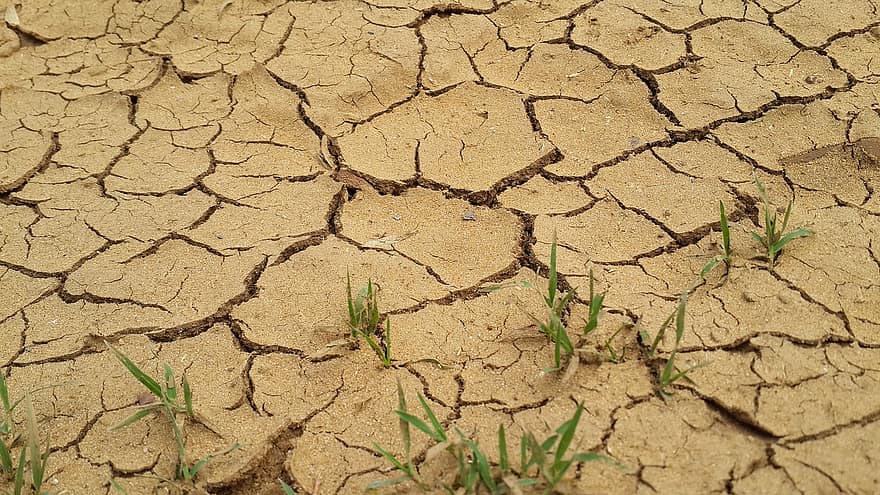Drought in France: Further help for farmers and stockbreeders
To address the drought in France, the Minister of Agriculture, Julien Denormandie, announced on Friday the opening of the compensation system for climatic “calamities” and tax relief.

The French government will allow the opening of the “disaster” compensation scheme to farmers and stockbreeders who are affected by the drought. They should also benefit from tax breaks to help them with their cash flow, announced the Minister of Agriculture, Julien Denormandie, on Friday, August 14.
“Exceptional measures are being taken to support farmers in the face of drought episodes that are constantly recurring”, the Minister said on the TV channel Franceinfo.
He also confirmed that a “significant part” of the agricultural part of the economic recovery plan, to be announced on 25 August, will be devoted to “adapting our crops to climate change”.
READ ALSO – 40ºC: a temperature that used to be remarkable in France, but is now frequently exceeded
“For all the departments that may be affected by the agricultural disaster,” the minister said he would be “very vigilant” so that the farmers concerned can benefit from it.
“At the end of the drought episode, we witness the consequences of yield reductions and we make these statements (…) which then give rise to financial support,” the Minister said, without giving the amount of the budget.
As part of the emergency steps, besides giving the green light to the use of set-aside land to feed livestock and to the postponement of sowing dates imposed by the Common Agricultural Policy (CAP), already announced, the Minister referred to “higher” CAP advance payments and “rebates on the property tax farmers pay” for the affected regions.
An agricultural aspect in the recovery plan
Earlier this week, the president of the Modef agricultural union, Pierre Thomas, had called for the activation of the national agricultural risk management fund (FNGRA) to compensate farmers exposed to drought damage.
The president of the National Federation of Farmers’ Unions (FNSEA), Christiane Lambert, had also called for a reduction in taxes or even deferred bank reimbursements for agricultural businesses.
READ ALSO – Could the coronavirus be devastating to the French wine?
“Beyond these very short-term agronomic and financial solutions, we must above all prepare for the future, which is the aim of the recovery plan, where a significant part of the agricultural component of the recovery plan will be devoted to adapting our agriculture to the effects of climate change,” the Minister added.
He mentioned three examples: financing the purchase of hail protection materials, financing research to find seeds more suitable for climate change, and improving resource management, particularly water management.
Historically early harvest in 2020
Another consequence of this exceptionally hot spring and summer, in all the French wine-growing areas, the date for the start of the harvest has to be brought forward by two to four weeks.
The aim: to avoid producing wines that are too heavy in alcohol, as high temperatures speed up the sugar concentration in the grapes.
The cellars barely emptied of the excess hectolitres of wine left by the health crisis, French winegrowers are preparing to fill them again with grapes from the historically early 2020 harvest, after one of the hottest springs of the century.
In Burgundy, the Fichet vineyard in Igé (Saône-et-Loire department) took out the secateurs on Wednesday, almost a month earlier than in 2019.
READ ALSO – French cereal production figures to drop this year
In the Bordeaux region, the Interprofessional Council of Bordeaux Wine expects a two-week advance on the five-year average: starting around August 20 for the whites and September 5 to 10 for the reds.
The same is true in Champagne, where the first secateurs cuts should be given around August 20, according to Maxime Toubart, president of the General Union of Winegrowers.
In the Loire Valley, the advance is ten days on average, with the harvest starting at the end of August for Chardonnay, Nantes Muscadet and Crémant d’Anjou and Touraine.